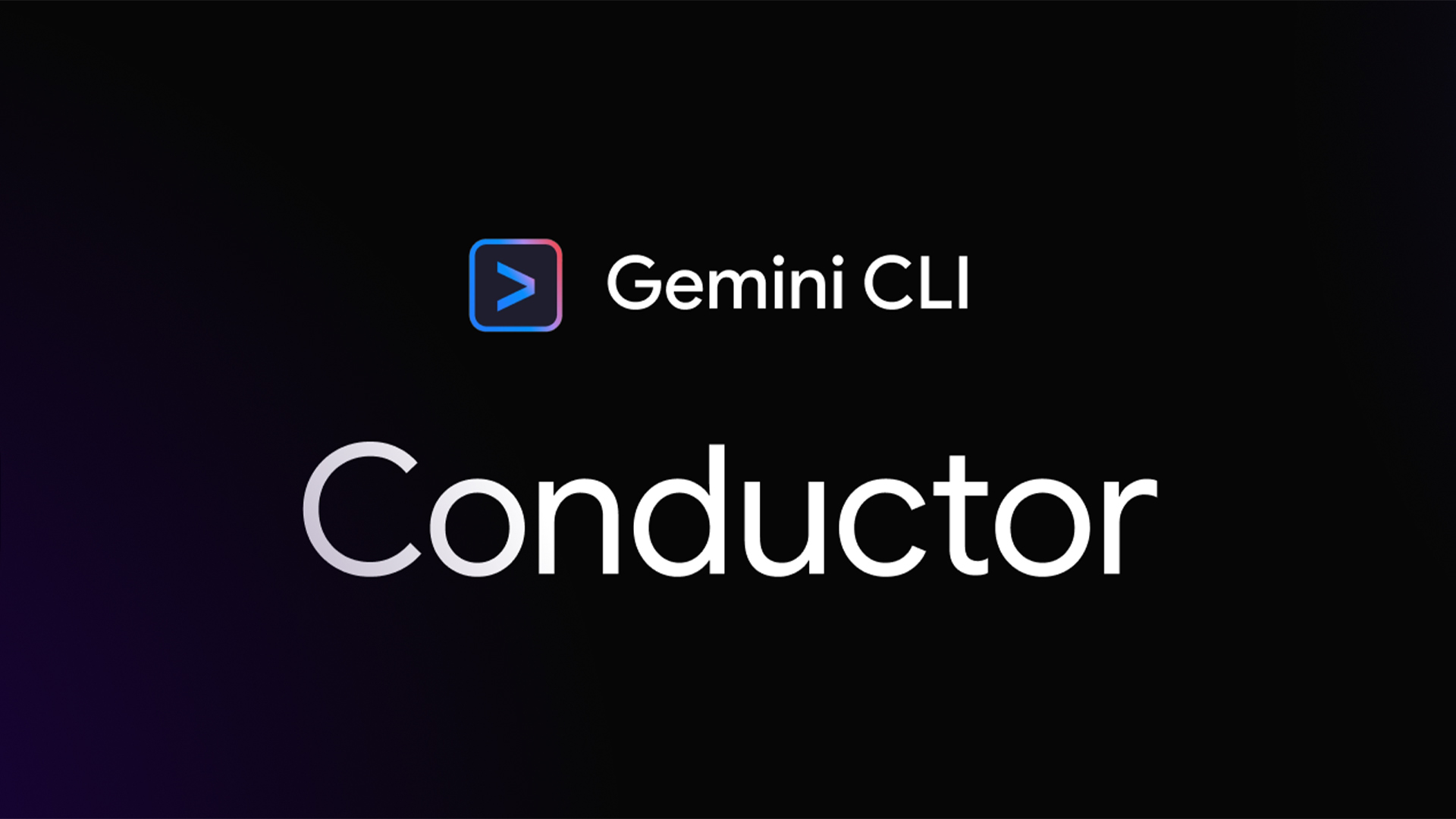Google CEO Sundar Pichai thinks software development is 'exciting again' thanks to vibe coding — but developers might disagree
AI coding tools might be causing headaches for developers, but Pichai is confident this is the worst they’ll ever be


Sign up today and you will receive a free copy of our Future Focus 2025 report - the leading guidance on AI, cybersecurity and other IT challenges as per 700+ senior executives
You are now subscribed
Your newsletter sign-up was successful
Google CEO Sundar Pichai claims software development has become “exciting again” since the rise of vibe coding, but some developers might disagree while bogged down in flawed code.
Speaking during a recent podcast interview, Pichai suggested the trend that’s taken the industry by storm will have positive long-term implications for both devs and non-technical individuals alike.
“It’s making coding so much more enjoyable,” he told host Logan Kilpatrick. “I feel things are getting more approachable, it’s getting exciting again, and the amazing thing is it’s only going to get better.”
Pichai noted that non-technical staff internally at the company are using AI to support workflows and finding them to be a valuable addition to the toolkit.
“There’s a sharp increase in the set of people who have submitted their first CL’s (changelists) and it’s because these tools are making it more accessible,” he said.
“Maybe you’re a product marketing person, you have an idea… in the past you would have described it. Now maybe you’re kind of vibe coding it a little bit and showing it to people, so you can tangible see that come to work.”
Pichai is the latest in a string of big tech execs to hail the potential of vibe coding over the last year. Indeed, Google Brain founder Andrew Ng specifically highlighted the democratizing effect of AI in coding earlier this month, with workers outside the software profession flocking to the tools.
Sign up today and you will receive a free copy of our Future Focus 2025 report - the leading guidance on AI, cybersecurity and other IT challenges as per 700+ senior executives
“The bar to coding is now lower than it ever has been,” Ng said. “People that code, be it CEOs and marketers, recruiters, not just software engineers, will really get more done than ones that don’t.”
Developers aren’t quite sold on vibe coding
Software developers don’t appear fully sold on the use of AI for coding, however, with research showing that although there’s a growing appetite for these tools, they often create more problems than they solve.
Findings from Google’s own State of DevOps report last year, for example, revealed more than one-third (39%) of developers had little trust in AI-generated code even though they use them on a daily basis.
Meanwhile, Stack Overflow’s 2025 Developer Survey found nearly half (46%) of developers “don’t trust the accuracy” of AI outputs when used for coding tasks. This marked an increase compared to 31% of devs who aired concerns on this front in 2024.
A key factor behind this skepticism is that the “productivity gains” delivered by the technology are negated by developers having to debug faulty code.
More than two-thirds (67%) of respondents to a survey from Harness said they now spend more time debugging flawed AI-generated code compared to when they were operating in a manual capacity.
Keep security teams in the loop
Pichai did acknowledge that there are risks associated with vibe coding, particularly in terms of security – and he’s not wrong.
A study from Veracode in July this year found nearly half of code generated with AI is fully secure, while a separate survey from Cloudsmith pointed to a growing trend of complacency among developers using these tools.
The survey found only around one-third of devs review AI-generated code before deployment, leaving enterprises open to an array of potential vulnerabilities.
In the meantime, Pichai said vibe coding should typically be used in an experimental capacity, and security teams should always be involved in the process.
“I’m not working on large codebases where you need to really get it right,” he said. “The security has to be there, so those people should weigh in.”
AI tools are the worst they'll ever be
Notably, the Google chief believes this is the worst vibe coding and AI tools will ever be, pointing to examples like autonomous taxi company Waymo. Initial skepticism and concerns about safety have given way to acceptance among commuters.
With AI coding tools, the same rules apply. Continuous improvements mean the technology will become more reliable moving forward, helping cement its place in the mainstream not only for non-technical individuals but for devs working on the frontline.
“There's something I always used to tell about Waymo, and whenever people talked to me about it is, ‘remember, this is the worst Waymo will ever drive’,” he said.
“This version of all these tools…vibe coding with Gemini 3 in AI Studio, it’s both amazing to see and it’s the worst it’ll ever be. Both are simultaneously true. You’re going to see a lot of progress ahead.”
Make sure to follow ITPro on Google News to keep tabs on all our latest news, analysis, and reviews.
MORE FROM ITPRO
- Want to supercharge your vibe coding skills? Here are the best AI models developers can use to generate secure code
- Vibe coding security risks and how to mitigate them
- ‘Slopsquatting’ is a new risk for vibe coding developers – but it can be solved by focusing on the fundamentals

Ross Kelly is ITPro's News & Analysis Editor, responsible for leading the brand's news output and in-depth reporting on the latest stories from across the business technology landscape. Ross was previously a Staff Writer, during which time he developed a keen interest in cyber security, business leadership, and emerging technologies.
He graduated from Edinburgh Napier University in 2016 with a BA (Hons) in Journalism, and joined ITPro in 2022 after four years working in technology conference research.
For news pitches, you can contact Ross at ross.kelly@futurenet.com, or on Twitter and LinkedIn.
-
 ITPro Best of Show NAB 2026 awards now open for entries
ITPro Best of Show NAB 2026 awards now open for entriesThe awards are a fantastic opportunity for companies to stand out at one of the industry's most attended shows
-
 Mistral CEO Arthur Mensch thinks 50% of SaaS solutions could be supplanted by AI
Mistral CEO Arthur Mensch thinks 50% of SaaS solutions could be supplanted by AINews Mensch’s comments come amidst rising concerns about the impact of AI on traditional software
-
 ‘AI is making us able to develop software at the speed of light’: Mistral CEO Arthur Mensch thinks 50% of SaaS solutions could be supplanted by AI
‘AI is making us able to develop software at the speed of light’: Mistral CEO Arthur Mensch thinks 50% of SaaS solutions could be supplanted by AINews Mensch’s comments come amidst rising concerns about the impact of AI on traditional software
-
 Automated code reviews are coming to Google's Gemini CLI Conductor extension – here's what users need to know
Automated code reviews are coming to Google's Gemini CLI Conductor extension – here's what users need to knowNews A new feature in the Gemini CLI extension looks to improve code quality through verification
-
 Claude Code creator Boris Cherny says software engineers are 'more important than ever’ as AI transforms the profession – but Anthropic CEO Dario Amodei still thinks full automation is coming
Claude Code creator Boris Cherny says software engineers are 'more important than ever’ as AI transforms the profession – but Anthropic CEO Dario Amodei still thinks full automation is comingNews There’s still plenty of room for software engineers in the age of AI, at least for now
-
 Anthropic Labs chief Mike Krieger claims Claude is essentially writing itself – and it validates a bold prediction by CEO Dario Amodei
Anthropic Labs chief Mike Krieger claims Claude is essentially writing itself – and it validates a bold prediction by CEO Dario AmodeiNews Internal teams at Anthropic are supercharging production and shoring up code security with Claude, claims executive
-
 AI-generated code is fast becoming the biggest enterprise security risk as teams struggle with the ‘illusion of correctness’
AI-generated code is fast becoming the biggest enterprise security risk as teams struggle with the ‘illusion of correctness’News Security teams are scrambling to catch AI-generated flaws that appear correct before disaster strikes
-
 ‘Not a shortcut to competence’: Anthropic researchers say AI tools are improving developer productivity – but the technology could ‘inhibit skills formation’
‘Not a shortcut to competence’: Anthropic researchers say AI tools are improving developer productivity – but the technology could ‘inhibit skills formation’News A research paper from Anthropic suggests we need to be careful deploying AI to avoid losing critical skills
-
 A torrent of AI slop submissions forced an open source project to scrap its bug bounty program – maintainer claims they’re removing the “incentive for people to submit crap”
A torrent of AI slop submissions forced an open source project to scrap its bug bounty program – maintainer claims they’re removing the “incentive for people to submit crap”News Curl isn’t the only open source project inundated with AI slop submissions
-
 ‘This is a platform shift’: Jensen Huang says the traditional computing stack will never look the same because of AI – ChatGPT and Claude will forge a new generation of applications
‘This is a platform shift’: Jensen Huang says the traditional computing stack will never look the same because of AI – ChatGPT and Claude will forge a new generation of applicationsNews The Nvidia chief says new applications will be built “on top of ChatGPT” as the technology redefines software